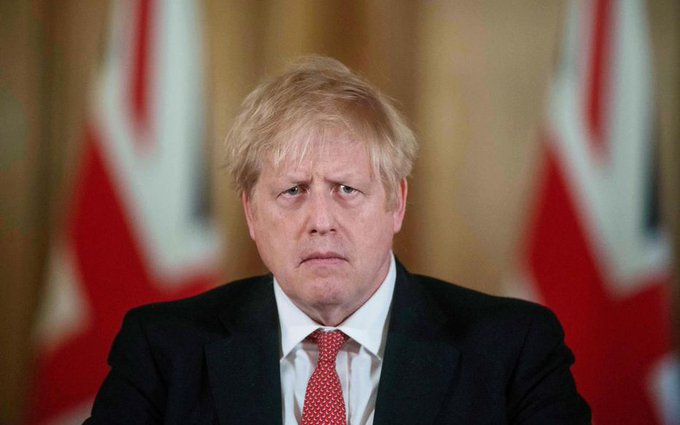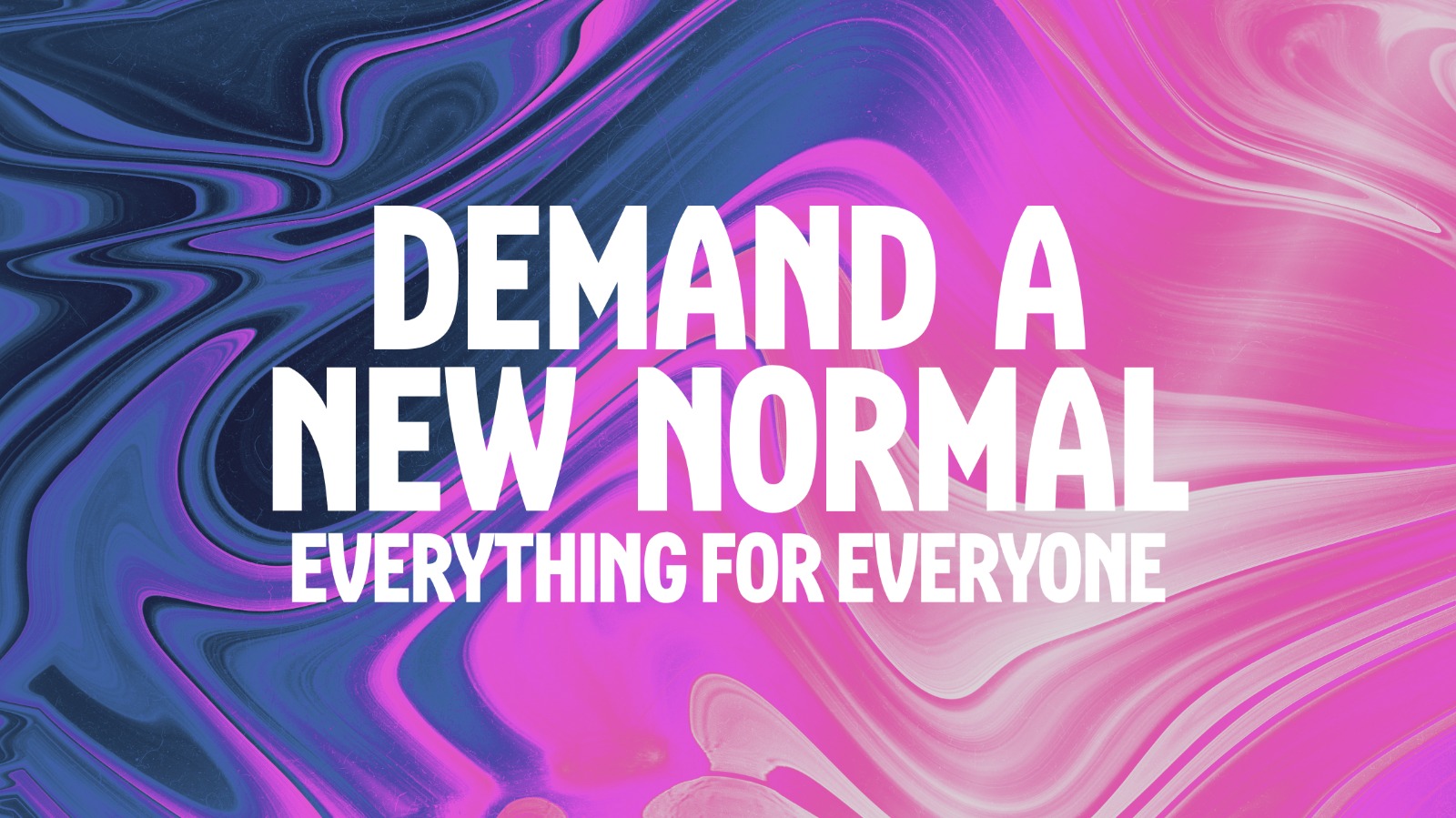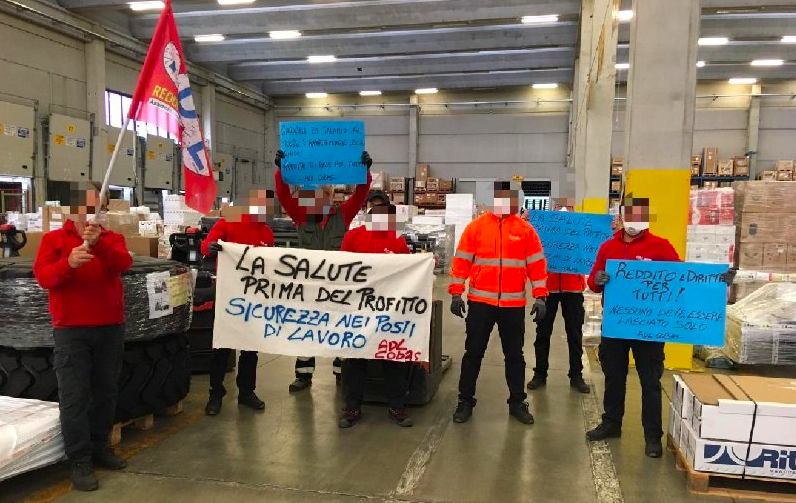By Cyril Winstanley
The UK government has launched its new hashtag, ‘StaySafeSaveLives’. Prime Minister Boris Johnson has tweeted, in the know-it-all tone of contemporary social media: “Stay two metres apart. It’s not such a difficult thing. Do it. It really will save lives.” The short imperative sentences with their strong sense of righteousness come from a man who, at a press conference only a few weeks ago, gave this message to the nation, which I have faithfully transcribed below: “Well [incoherent posh bumble] I can tell you that I am I I I’m shaking hands [incoherent], I was at a I was at a hospital the other night where I think there were a few there were actually a few corona virus patients and I shook hands with everybody er you’ll be pleased to know and I continue to shake hands and er”.
After this and various other irresponsible statements, now responsibility to slow the infection is passed onto us. The newspapers have joined in: ‘THIS IS NOT A GAME!’ screamed the Metro with accompanying picture of a victim on a stretcher, and the news that ‘THOUSANDS RISK OTHERS’ LIVES BY FAILING TO SOCIAL DISTANCE”. The Mirror had a picture of a busy beach promenade in Bournemouth and the accompanying headline ‘MADNESS’. Health Secretary Matt Hancock’s has taken up moralism, describing people as ‘very selfish’ for ignoring the belated government advice to try not to infect each other.
Absolutely, we should all be careful. It is not ok to flaunt risks at this time and most of us are making adjustments to rearrange our lives. Thousands of mutual aid groups have set up to try and arrange help for those in isolation who need it, and most people have limited their social contact, tried to establish new hygiene measures and stocked up on essentials should they need to stay indoors for a fortnight. Of course, there are those who are reckless with theirs’ and others’ safety. Of course, there are some people who have been panicked into buying absurd quantities of toilet roll, and there have been wannabe entrepreneurs buying up face masks and hand sanitiser to make a tidy profit online.
However, we should not let the moralistic tone of government and media responsibilise us for this disaster. It is well worth remembering that, having heard scientific advice and been shown the modelling, the UK government chose ‘herd immunity’ as the best option. It was a ‘let die’ policy that would allow business as usual and a quicker end point to the crisis – we would either be immune or dead within three months, was the hope. When they pulled a U-turn on that policy, it was not that the ‘science changed’ as Johnson claimed. Perhaps, the government got scared when they realised what a 1% death toll of an 80% infected population meant, and then changed policy. Perhaps, it was a result of international pressure on Britain not to go it alone with their survival-of-the-fittest approach to a pandemic. It’s either that, or by doing next to nothing for two months, the government have already created the conditions to help spread the virus and we will now see how much of the herd has become immune or not.
As they lecture us on our selfishness and irresponsibility, we must make the government remember that it is their responsibility to arrange tests on a much bigger scale, particularly for health care workers, care workers and home carers, and we must demand that frontline staff in this crisis have adequate protective material – PPE that is in-date and meets WHO standards rather than the dangerous exposure the UK government has deemed ok for ‘our NHS’ staff to face. It seems that, rather than admit to the scale of the problem by testing healthcare workers and discovering how many are truly infected, the government would rather put their blind eye to the microscope and demand the workers keep working. Now retired workers should come back, doctors and nurses work truly extreme hours, the NHS hires beds off the private sector (do we know if, by whom, or how this is paid for?), and people should learn online to become carers at home with little in the way of protective equipment, or guidelines.
The good news is that this crisis has shown that what we push for has been remarkably quickly granted, albeit in watered down or modified form. The state has found its hidden magic money tree (which of course was there all along) and has finally given it a shake. Some of the windfall gives back something to the people who have created the wealth in the first place. The Tories started (as it might be expected) with business loans and mortgage breaks, then a massive Bank of England buyout of government bonds in order to keep the debt market afloat. They have moved on to halt rental evictions and guarantee some wages (assuming that bosses are compliant in passing on the money and re-hiring the workers they have already sacked). We must keep pushing. There is still the question of what happens to renters once the eviction-free period stops. There is still the question of zero-hour contract workers and the self-employed. Vitally, there is the question of the safety of health care professionals, prisoners, detention internees, sex workers, the homeless and those in danger of domestic violence.
Right now, another problem presents itself. If we accept the narrative that we are to blame for our irresponsible bulk buying and trips to Snowdonia, then we will also accept the remedy for our incorrigible irresponsibility. If we cannot be trusted to ‘#StaySafeSaveLives’ then the state will do it for us. Of course, we must all accept limits on our freedoms at this time. However, we do not need fines, arrests or detentions. We cannot allow the state to use our supposed culpability as justification for an increase in their power. They have already Marshall Planned business, ready to nationalise them when they go bankrupt and sell them off to the monopolising corporate giants as they did with Northern Rock and etc in 2008. Now they see a chance to impose Marshall Law. Given their recent record, should we trust their motives or the outcome? Netpol were quick to point out the dangers in a Coronavirus Bill that will be “strengthening the quarantine powers of police and immigration officers”. Now we face fines for gathering in more than twos or using an outdoor gym. We are potential patients, not criminals.
We are also potentially responsible, thinking, caring beings. We must believe in our own ability to be responsible as individuals and to pull together as a society. In return, we must demand responsibility from the government and not ask for unnecessarily draconian measures because we have accepted that we are all irresponsible. Clear and well-evidenced public information and guidelines we would accept. But there are lines they cannot cross. As Netpol say, the government are “starting from a position that imposing further coercive controls and treating us as potential criminals is necessary for the next two years”.
It is interesting, of course, who is not subject to these controls. While all ‘non essential’ production and consumption have been shut down, although Sports Direct have been forced to back down over opening, at the time of writing, traffic wardens are still patrolling the streets, and construction sites remain open. Crossrail Chief Executive Mark Wild has announced that “we will do what we can to keep individual sites open and productive as best as we can.” Two and a half years behind schedule already, with a cost of £18.25 billion so far, it seems the state must continue ploughing money into the project, despite the health risk to the workforce and, thus, the rest of the population. Amazon, that essential service of our time, is raking in profits, but has only shut down facilities where workers have made it do so, as in New York after a worker had tested positive for the virus and colleagues refused to go in until the warehouse was sanitised. An online petition by Amazon workers demands paid sick pay, a safe rate of work and childcare pay and subsidies. Will the police arrest Amazon and Crossrail directors for organising gatherings of large groups of people? Meanwhile, Amazon workers encourage people not to buy non-essentials.
We must accept our mortality and vulnerability to disease, while remembering, in the face of this pandemic, that our collectivity is not just our weakness but also our strength. We may live in isolation and we may well die alone, but we will either defend ourselves together or not at all. We must demand our freedoms, not least our freedom to build a society where we can be responsible for the managing of our own lives.





